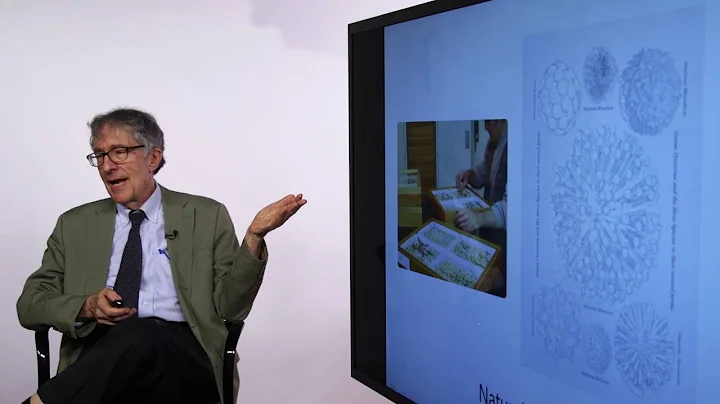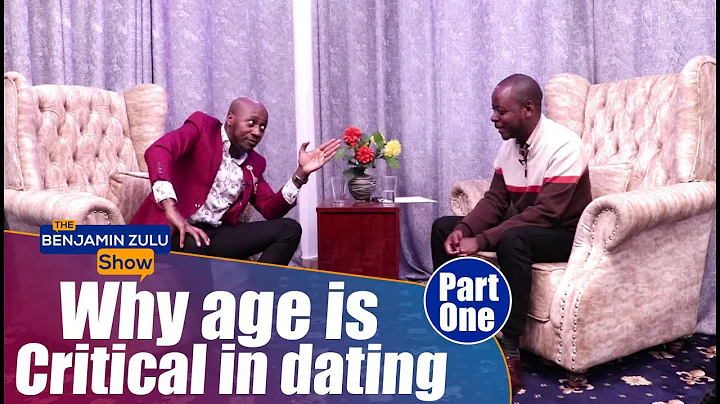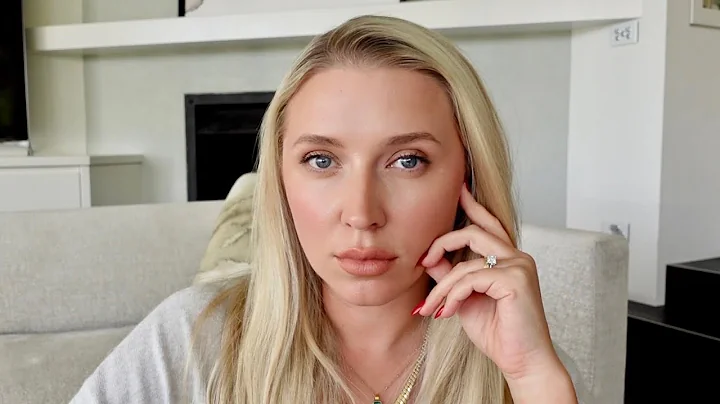
If there is one ability that must be cultivated in children at all costs, it must be to teach children to "know themselves."
I often wonder why it took me until I was 30 to find a job I love. Before that, I didn’t have a clear understanding of what I liked to do and what I was good at. Even when my baby was four years old, Only then did I gradually realize that I really liked children's education, and was willing to study and practice it, and eventually became an family education instructor .
It has been more than ten years since I graduated from college, and my life has gone through a long detour.
My best friend, who has the same feelings as me, is raising a family and is struggling to pass the certified public accountant exam. She said that if she had known that she was destined to be an accountant, she would not have majored in architecture in college.

I think these regrets and regrets, in the final analysis, are because we have not established a clear self-understanding since we were young, and our dreams and goals are out of touch with study and work.
So much so that I only found my own seeds at the stage of my life that was supposed to bear fruit.
Now that we have become parents, we naturally don’t want our children to make the same mistakes. What we can do is guide our children to “understand themselves” and help them find their own seeds of life.
What is the ability to "know oneself"?
The question "Who am I" is a question that children have to face until adolescence. During most of childhood, individuals are looking for an answer in some way - -------"Child Development Psychology"
When it comes to "knowing yourself", what we can think of is: knowing what you look like, knowing your strengths and weaknesses, what kind of interests and hobbies you have, and what you like. What, what I don’t like, what I’m good at, what I’m not good at.
In addition to these, we also need to equip children with three other abilities based on self-awareness, that is: have goals, can choose, and can judge.

1. On the road of life, you can find clear goals
Deputy Director of Peking University Mental Health Education and Counseling CenterXu Kaiwen proposed a mental illness called "hollow disease". People who suffer from this disease will feel that their lives are worthless. It's meaningless, I feel very confused about life, I don't know what I want.
To deal with "hollow disease", we must face these ultimate questions: Why do people live? What is the meaning of life? What is the most important thing to yourself?
Director Xu said: Forty percent of freshmen at Peking University think life is meaningless. These students have been the best and most well-behaved students since childhood.
I remember when I was a child, teachers and parents often said: If you don’t get into college, your life will be ruined.
If going to college is the meaning of life, why do these children who go to Peking University think that life is meaningless? Obviously, getting into college is not the ultimate goal in life.
Parents of our generation should try this way: guide their children to find something they love and like, regard this thing as a goal, and let learning become a means to achieve the goal.
For example, if a child likes to draw and can draw really well, then we need to let the child understand that if we want to obtain more professional, better, and higher-level drawing resources, we have to go to school.
If you open the way for your own interests and work hard for your own goals, all learning and struggle will be meaningful.
Knowing oneself means allowing children to find things they love, points of interest or shining points, and make all efforts serve these goals to prevent children from getting confused.

2. Have the ability to make choices at important forks in the road
Children will face many important choices in their lives, such as high school entrance examinations, college entrance examinations, employment, and spouse selection. Different choices will bring different lives. This uncertainty determines the choice. Not an easy task.
However, in the end, the only person responsible for the "choice" is yourself, and the child has to go through his own life.
Take the college entrance examination as an example. On the one hand, which university and which major to choose is restricted by scores. On the other hand, it also depends on whether children can make decisions when faced with important choices.
Bao Jiajun, the son of Inner Mongolia martyr policeman Bao Zhanquan, received invitations from many prestigious schools such as Peking University, but he resolutely chose Renmin University of China . This school is also his father's alma mater. Bao Jiajun chose to continue The glory of my father.
Zhong Fangrong has been a left-behind child since he was a child. In the 2020 Hunan Provincial College Entrance Examination, he achieved fourth place in the province in liberal arts. Finally, he applied for the archeology major at Peking University. Everyone questioned that this major was unpopular and difficult to find employment, but Zhong Fangrong was very determined. Choice, she said: Do what you like and have no regrets.
Knowing oneself is to enable children to gradually acquire the ability to choose, to think independently at important crossroads in life, and to make choices that they will not regret.

3. Ability to maintain independent judgment in the face of others
In the foreign language school affiliated with Guangzhou Foreign Language School, there is a third-grade boy who is jokingly called "the sober person in the world" by netizens. This child is always able to speak amazingly and say something transcendent. It makes sense for his age group.
Faced with the doubts, ridicule and pressure brought by his popularity, the little boy said: Just be yourself, I will turn pressure into motivation, and motivation will drive me to do better.
answered the difference between a role model and an idol. He said: An idol is just that I like him, and a role model is that I like him, so I have to imitate him, and the role model must be a good role model and play a good role.
I think this little boy is a judgmental and thinking person.
Today’s children are exposed to a vast world and a breadth of information far beyond that of those born in the 1980s. You can see students scrolling through their mobile phones everywhere on the road.
What you can’t see is what kind of information they get from their mobile phones and what impact this information will have on their values.
Information can be divided into true and false, and people are divided into good and evil. Those who are light and those who are dark must appear in front of children sooner or later.
To know oneself, children need to learn to identify, learn to see the essence through phenomena, and make objective and independent judgments when others are saying what they say.

How to let children "have goals, be able to choose, and be able to judge"
Socrates has a motto: Know myself. This sentence can be used in education, that is: guide children to know themselves. How to guide
? The method is very simple and can be used everywhere in life:
1. Don’t deprive children of the opportunity to choose and judge.
Many parents will complain that their children are too rebellious, especially after the age of 2. They don’t listen to their parents’ opinions and do everything by themselves. , I want it, but I don’t want it.
Underneath the child's rebellious appearance is the development need to "know himself". He needs to gain the following experiences in these things related to himself:
What can I do, what can I do, how can I do it, What things can I control
All these experiences are based on "self-choice, self-judgment", rather than parents' requirements and suggestions. If we always let our children obey our opinions, you will do whatever I say. , that child will never learn to choose and judge.

To guide children to understand themselves, we need to return the right of choice and judgment to children.
You may think that children are too young to make correct choices and judgments, but if we think about it carefully, those things that make three or four-year-old children rebellious are actually bigger things, such as choosing their own clothes, Choose your own snacks, take the stairs instead of the elevator, read this book instead of that one, play with this child instead of that child.
Although these things are inconspicuous, they are good opportunities to train children to learn to choose, think and judge.
What is more important than choice is the ability to choose. How can children who have not had the opportunity to make their own choices and make judgments since childhood be able to make the right choices at important junctures in life when they grow up?
So, next time when we are faced with choices and judgments, we only need to say this to our children: What do you think? What good suggestions do you have? What are you going to do?
Every time a child answers you with "I" words such as "I think, I want, I feel", it is an active expression of self-awareness.

2. Guide children to set goals and then achieve them.
We can create opportunities for children to repeatedly experience the process of setting goals and then working hard to achieve them. The purpose of
is to let children gain a sense of accomplishment, feel that their abilities are constantly improving, and cultivate self-confidence.
thus strengthens a belief: I am a person who has the ability to solve problems and can continue to make progress.
There are many such opportunities. For example, we ask our children: How many picture books do you plan to read before going to bed today?
The child said, I want to read 3 books.
Then we will read 3 books with our children. After reading, we will say: Congratulations, you have achieved your reading goal.
For another example, if a child wants to play a puzzle, we ask: How many puzzle pieces do you plan to put together today?
The child said, I want to fight for 88 yuan.
Then we will accompany our children to put together an 88-piece puzzle. After finishing the puzzle, we will say: That's great. You accomplished your goal. Although you encountered some difficulties along the way, you found a way to solve it. I'm proud of you.
Just say these two sentences before and after any of the children's daily games, so that the children can connect the setting of goals and the realization of goals, and form a habit of thinking.

3. Respect children’s unreliable thoughts and actions
Many times, in order to avoid children taking detours and wasting time, we are eager to tell children directly what we think are successful and effective experiences.
The child's thoughts and actions seemed to us to be childish and troublesome. We spent a long time exploring there, but to no avail. We were so worried that we wanted to help him solve the problem.
However, we have overlooked one essence, that is: the child's "unreliable" thoughts and actions are not to achieve a certain result, but he is trying to see what kind of result will occur according to his own ideas and methods.
What children pursue is the process and results, while parents only want to see the results.
Professor Hong Lan said: Everyone is the sum of past experiences. Our past experiences have made us who we are now.
The same is true for education. No matter how educated or smart parents are, they cannot directly transfer the wisdom in their own heads to their children's heads.
He needs to experience it over and over again, and the experience he finally gains is his own wisdom in life.

When a three-year-old child says: Mom, let’s take the stairs, let dad take the elevator, and let’s see who gets home first.
Even though we are heartbroken because we live on the 16th floor, we should try our best to restrain ourselves and hold back the words "Are you a little stupid?" If we are not in a hurry, we can verify it with him.
then asked the child: Think about it, which floor you live on will be faster by taking the stairs than taking the elevator?
The child said: 1st floor, 2nd floor? Mom, let's go verify it.
turns the "seemingly absurd" action (not taking the stairs when there is an elevator) into a small scientific experiment to verify "fast and slow".
put forward hypotheses and verified them in practice. Such rational thinking can make children's self-cognition system more perfect.
Only by respecting children's unreliable and even absurd ideas and behaviors can children gain unlimited space to confirm the ideas in their heads.
Let the ability of self-cognition be fully developed.





















